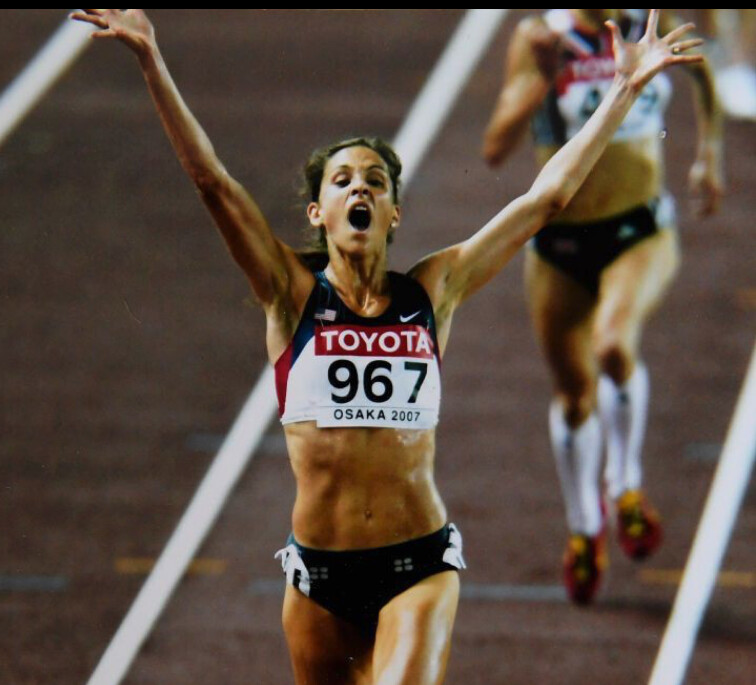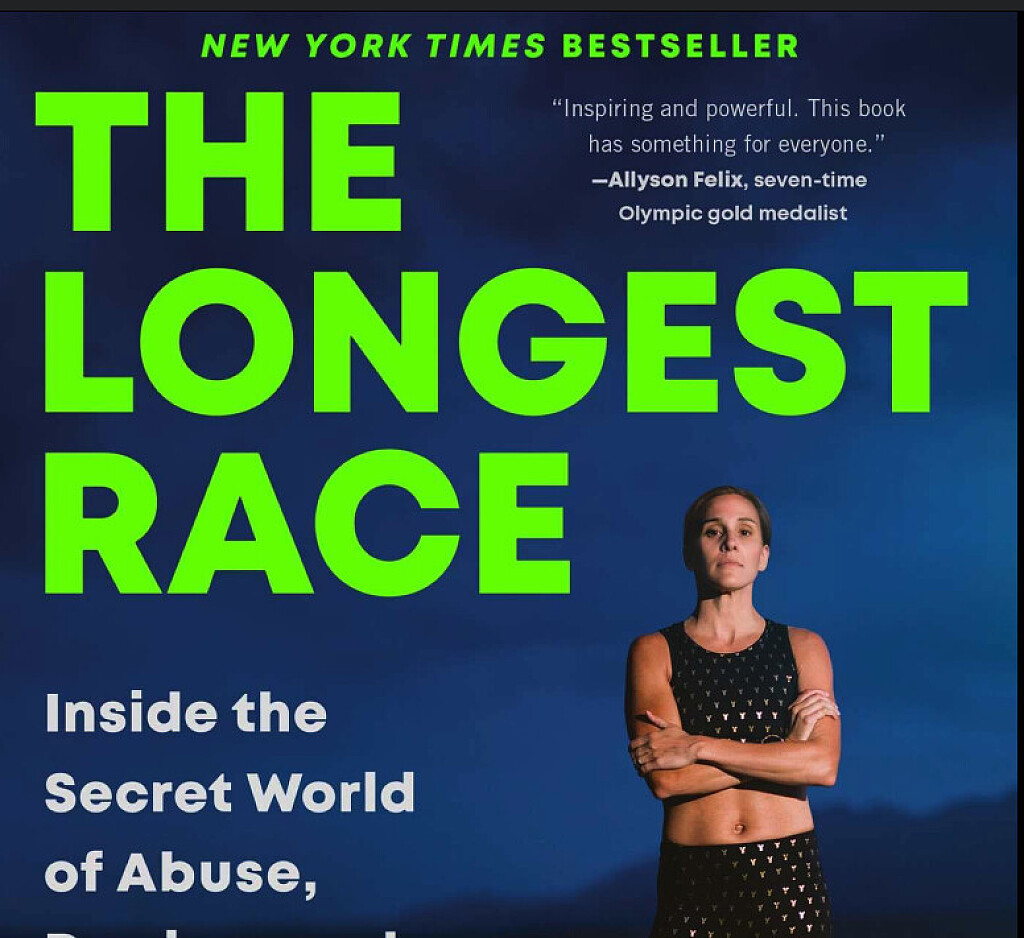Running News Daily
Running News Daily is edited by Bob Anderson. Send your news items to bob@mybestruns.com Advertising opportunities available. Train the Kenyan Way at KATA Kenya and Portugal owned and operated by Bob Anderson. Be sure to catch our movie A Long Run the movie KATA Running Camps and KATA Potato Farms - 31 now open in Kenya! https://kata.ke/
Index to Daily Posts · Sign Up For Updates · Run The World Feed
Kara Goucher’s Book Offers Rare Insight Into Elite Athlete Contracts
Confidentiality clauses usually stop runners from talking about their endorsement deals.Kara Goucher’s memoir about her career in professional running, The Longest Race, alleges shocking behavior by her longtime coach, Alberto Salazar, and how she overcame it. But a subplot throughout the book is how much money she was earning in the sport along the way.
Goucher is open about her contract with Nike and appearance fees at races, including the New York City Marathon, the Boston Marathon, and the Great North Run in the U.K. (Nike did not respond to an email from Runner’s World seeking comment.) Even though the deals are from 10 to 20 years ago, they provide an interesting look at the business side of professional running. It’s a rare peek, too, because sponsor contracts are bound by confidentiality clauses and, in many cases, those clauses extend beyond the term of the contract.


Goucher’s did, but she decided to reveal the information anyway—to be helpful to other athletes. “I just felt like it was very important to have those numbers in there,” she said in a phone call with Runner’s World. “How do you know what to ask for if you have no idea what anyone else is getting paid?” Here’s what we learned about Goucher’s pay and that of her husband, Adam Goucher, from the book:
In 2000, Adam Goucher was making a base payment of $50,000 from Fila, his first sponsor. In his first year, he ran so well that he earned $185,000 with bonuses. Goucher writes that the pay was a “welcome windfall that helped him pay off student loans.”
In 2001, Kara Goucher signed a four-year deal with Nike for $35,000 per year. This was her first professional contract after she graduated from the University of Colorado.
In 2003, Adam Goucher signed with Nike with a base pay of $90,000 per year. The Longest Race: Inside the Secret World of Abuse, Doping, and Deception on Nike's Elite Running TeamIn the fall of 2007, she ran the Great North Run, a half marathon in Newcastle, England. The race director paid her an appearance fee of $13,000 and made a deal with Goucher’s agent at the time, Peter Stubbs, to pay her $30,000 if she won. The money was “not far off the annual salary I had lived on for years,” Goucher wrote. She won the race.
In February 2008, Goucher signed a new Nike deal that paid her $325,000 per year for four years, with an option for Nike to extend to a fifth year. The contract included performance bonuses ranging from $10,000 to $500,000 for an Olympic gold medal. There were also reductions, which could cut her pay. She had to race 10 USATF-sanctioned events per year, and if she ended the year ranked lower than third in her event in the U.S. or out of the top 10 in the world, Nike could dock her pay.
Goucher told Runner’s World that, for her second shoe deal, she asked her agent to accept a commission of 8 percent for each year of the deal. The industry standard is 15 percent. He agreed. She continued to pay him 15 percent on her appearance fees and prize money. She also made sure that she was paid directly by Nike and then she paid her agent. (In most cases these days, the shoe company pays the agent, who then pays the athletes, because it’s less paperwork for the shoe company, having to deal with individual athletes.)
In November 2008, Goucher made her marathon debut at the New York City Marathon. She earned an appearance fee of $175,000. Nike also paid her bonuses paid on based on her place and time, but Goucher didn’t disclose those. She wrote, “One good marathon and I could easily walk away with more than my yearly contract salary.” In April 2009, Goucher ran the Boston Marathon, which, at the time, traditionally paid less in appearance fees to athletes than New York. (It is also the only major marathon in the U.S. in the spring.) Her appearance fee was $80,000, but when she learned another American, a male runner, was making $85,000, she asked the BAA to match that. Race organizers agreed.
In early 2010, Goucher learned she was pregnant with her son, Colt. Salazar confirmed with Nike executive John Capriotti on Goucher’s behalf that Goucher wouldn’t suffer a reduction in her pay as long as she remained “relevant,” she wrote. Her first of four quarterly payments from Nike arrived on time in January, as did her second in April. But in July, her accountant told her that her payment hadn’t arrived. Nor did her October payment.
This set off a lengthy battle between Goucher and Nike over money during her pregnancy. Ultimately, Nike docked her pay for six months and extended her contract to the end of 2013.
At the end of 2010, Adam Goucher’s contract with Nike ended.
In 2011, USA Track & Field (USATF) said it would be dropping the Gouchers’ health insurance, because her marathon ranking had dropped while she was pregnant. She appealed the decision, and the U.S. Olympic Committee stepped in and reinstated the health insurance. This rule has subsequently been changed—pregnant athletes can keep their health insurance—and today’s runners laud that change.
At the end of September 2011, Goucher left the Nike Oregon Project. She remained under contract with Nike and stayed in Portland, Oregon. Jerry Schumacher coached her, and she trained with Shalane Flanagan.
At the end of 2013, Goucher scrambled to race 10 times so Nike wouldn’t suspend her pay again. She ran a turkey trot to fulfill her obligations (and won a pie). Her contract with Nike ended at the end of the year, and she and Adam sold their house in Portland and moved to Boulder, Colorado.
In 2014, Goucher entertained contract offers from other companies, although Nike still had the option to match any offers. Saucony offered her $1 million total over 5 years, with bonuses and no reductions. Ultimately, she chose to sign with women’s clothing brand Oiselle for $20,000 per year, and a 2 percent stake in the company. She signed a separate deal for footwear with Skechers.
Today, Goucher encourages athletes to speak up and not be afraid to rock the boat, especially those who are lower-paid. She faults the secrecy around pay in track and field with creating difficult situations. It’s required to agree to the confidentiality clause in contracts in order to secure the deal, she said, and in some cases, that gives cover to companies that underpay talented athletes. The confidentiality clause “only harms the athlete and protects the brand,” she said. “Because then they can continue to pay you the least amount possible.”
Agent Hawi Keflezighi, who has never worked with Goucher, agreed with her assessment. “I think there are a lot of very bad contracts out there that footwear brands would probably be embarrassed to admit to,” he said. “There are some really bad deals out there that would probably create a backlash.”
by Runner’s World
Login to leave a comment




